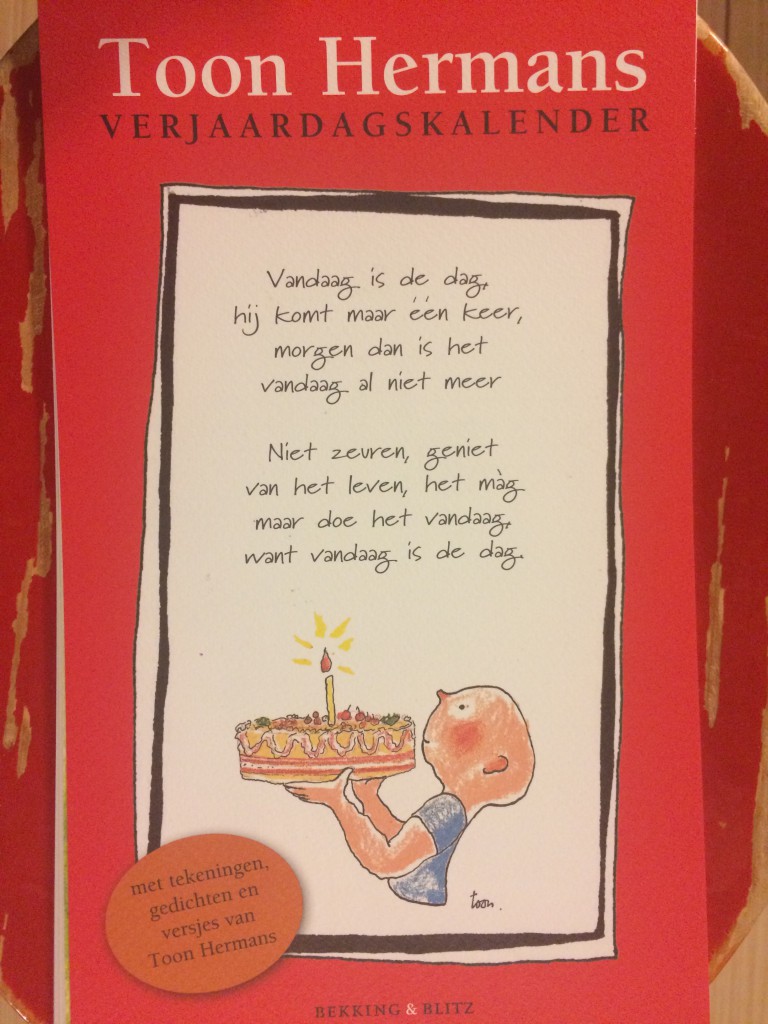When I was a boy, my grandparents had a birthday calendar in their toilet, just as many Dutch families do. On twelve pages – one for each month of the year – the calendar listed when their (grand)children and friends had their birthdays. As the calendar didn’t mention the days of the week, my grandparents could use it year after year.
Next to it, they had a print of a rhyme by Toon Hermans, a Dutch comedian and poet. It went as follows:
Vandaag is de dag
Hij komt maar één keer
Morgen dan is het
Vandaag al niet meer
Niet zeuren, geniet
van het leven, het mag
Maar doe het vandaag,
want vandaag is de dag.
Today is the day
It comes only once
Tomorrow it won’t
Be today anymore
Do not complain,
enjoy life, you may
But do it today
cause today is the day.
Birthdays and happiness
While I do care about my friendships, I am terrible in remembering birthdays. Even Facebook’s notifications – where every birthday becomes a number in a red box next to a bell, asking for your attention – do not help me. I am not as intimated by red numbers anymore as I was when I first got Facebook and a smartphone.
I think birthdays are important: it’s worth celebrating life, and it’s worth celebrating others that are important to you. Humans are social animals, and we need others to be happy. A birthday offers the occasion to have a small celebration, to appreciate the year that has past, to spend time together in pleasant company, or just send our good wishes. I’d imagine there to be a positive correlation between sending and receiving birthday wishes and happiness (though I didn’t come across any research on birthdays and happiness – I suggest this to be subject of further research).
I thus believe it’s a worthy goal to change myself, and get better at birthdays. Therefore, one of my New Year Resolutions this year is to remember my friends’ birthdays. Reminiscing about my grandparents’ birthday calendar, I set out to get the best tool I could think of to support me in meeting this resolution: an old-fashioned birthday calendar. I even managed to get one with the very poem lighting up my grandparents’ bathroom.
So I hope that 2019 will be the year of remembering and celebrating birthdays. Because many days this year, it will be “today is the day” for one of my friends. And I hope these birthdays will be happy ones.



